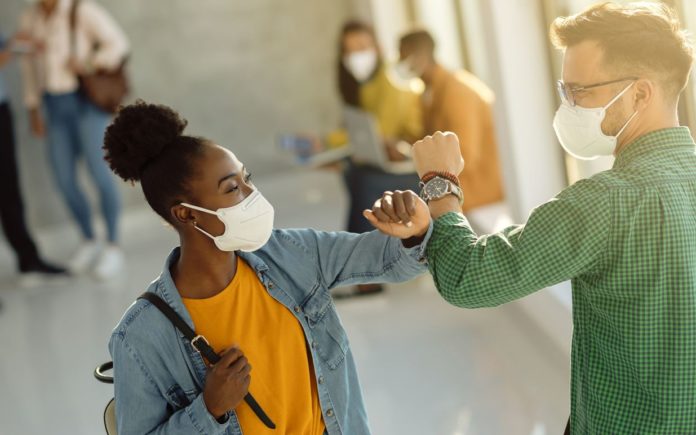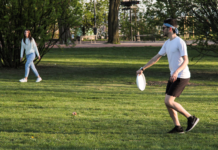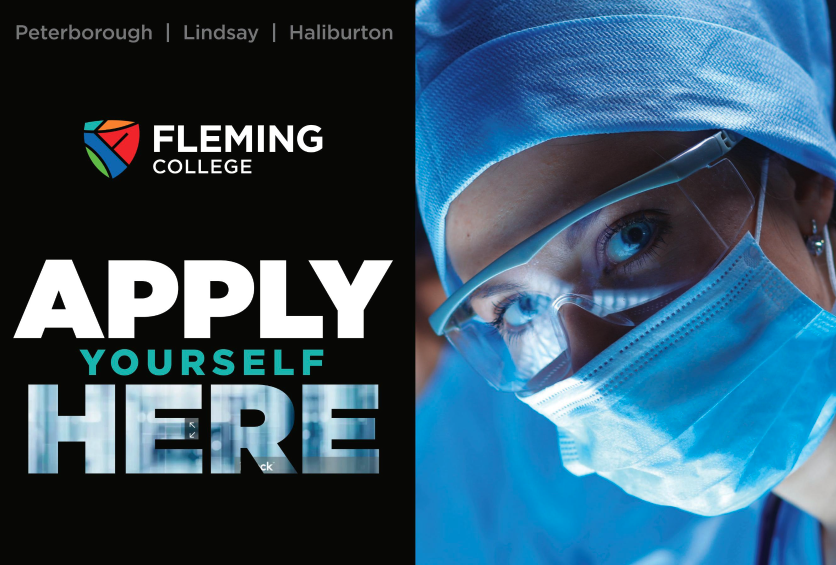The novel coronavirus disrupted college and university classes, closed down campuses and forced learning to go online for the better part of two years.
After what was deemed by many post-secondary institutions to be a “transition semester” in fall 2021, many across Ontario are ready to get back to normal, or at least to a modified version of normal, for the winter semester of 2022.
That will include, in many cases, required proof of vaccination, the wearing of masks while indoors, and enhanced cleaning regimens.
But it will also include more academic programs and student services offered online or in a hybrid model, along with more resources dedicated to student health and well-being.
At Centennial College in Toronto, online offerings will be permanent fixtures in its program mix for the foreseeable future, says David Ip Yam, Dean of Students. He says at the beginning of the pandemic, the college invested in 44 full-time programs that are fully online “so that students can be fully engaged in these career-oriented program regardless of where they’re located in the world.”
As well, co-curricular and student services, including enrolment, academic advising, and personal counselling shifted online and those offerings will continue.
“More recently, we’ve invested in HyFlex (“hybrid + flexible”) learning, which is a relatively new approach that provides students with the choice whether to attend class on campus or in person, live online or online anytime (asynchronous).”
Centennial students have reported more stress over social isolation, workload demands, difficulty concentrating, job security and financial concerns, among others, says Yam. The college responded in a number of ways, including by facilitating community building through student-to-student connections through weekly engagement programming, e-mentors, and international student ambassadors.
As well, the college “normalized mental health and help-seeking, including launching a peer listener program, given that some students prefer to seek support from other students,” said Yam.
Centennial also created a call centre and a virtual queue for services within the student portal, highlighted skillsbuilding workshops, such as time management, career development and online learning strategies at key points throughout the term, and invested over $1 million in additional funding to students in 2020-2021.
“Based on our Student Pulse Surveys from fall 2020 to winter 2021, we saw statistically significant improvements in student satisfaction with the online learning experience, quality of services and feeling safe. We know we have more work to do on all fronts, but these results have been validating.”
The sudden onset of pandemic restrictions in March 2020 required a rapid mid-semester shift to ensure students could complete their courses, said Alison Horton, Vice President Academic at Mohawk College in Hamilton.
“We are proud of what we accomplished during our initial response. More than 20,000 courses were transferred into a new online learning system in just 10 days. Our faculty made an impressive transition in a short amount of time, quickly adjusting their delivery plans as needed.”
The “vast majority” of students were able to complete their courses despite community restrictions and lockdowns, said Horton.
“We then took advantage of the moment to rethink and redesign program delivery for the 2020-21 academic year.” That included creative ways to keep students engaged in remote learning, such as lightboard technology to illustrate concepts and formulas during lectures, gamified learning through virtual escape rooms, and simulations to allow for the replication of “real world” learning scenarios.
In programs in which in-person training is critical, such as skilled trades and healthcare, strict safety protocols allowed for the return of more than 6,000 students to shops and labs without any COVID-19 outbreaks.
Successful innovations introduced during the pandemic will continue in the future, says Horton.
“We have a strong desire to fully reopen our campuses for students, to provide them with a complete student experience again, as soon as we can safely do so. At the same time, we recognize that some students have excelled in virtual and remote learning and would prefer to learn in a more flexible environment moving forward. For that reason, we expect that we will continue to build on the hybrid learning model as an option for many Mohawk College programs moving forward.”
A number of universities, including the University of Waterloo, Ryerson University, OCAD University and York University, have announced a return to classes for winter 2022. At both OCAD and York, there will be normal class occupancy levels and no physical distancing requirements.
“Looking ahead, as we plan to deliver a more normal level of winter term classes in person, we will continue to work with our local public health team to make sure our plans protect your physical and mental health,” read a statement released by the University of Waterloo on Sept. 20.
“This means we will largely return to our pre-pandemic approaches to academic life at Waterloo.”
Most universities and colleges all across the province have required proof of full vaccination to access campuses this fall. That is expected to continue in 2022.
Mandating vaccines will work to “protect the university from outbreaks, to protect individuals from severe disease, hospitalization and death, and to continue to promote a healthy environment in which we learn, work and live,” said University of Guelph president and vice-chancellor Charlotte Yates.
Maintaining online options seems to match the expectations of students, according to a poll done by KPMG that was conducted in early September and released in October.
The poll of 1,203 post-secondary students found that 88 per cent expect their university to provide the kind of “easy to use and straightforward” digital customer service experience they expect in other walks of life and over 76 per cent believe the university of the future will bear little resemblance to today’s education institutions.
“Over the next decade, students will become even more diverse, digital, and deliberate in their decision making, putting pressure on higher education institutions to design and deliver a more personalized experience that encompasses the student as a learner, a digitally savvy person, and a customer,” said C.J. James, partner and national education practice leader at KPMG.
Other key findings included 71 per cent of respondents who called campus life “important” and said they were looking forward to returning to in-person classes.










